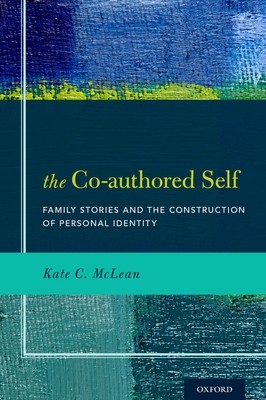
- We will send in 10–14 business days.
- SAVE -10% with code: EXTRA
Reviews
Description
Questions about identity are perennially intriguing, and vexing, to scholars and non-scholars alike. How do we know who we are? How do we define ourselves? How much are we the agents of our own identities, and how much are we defined by others? In The Co-authored Self, Kate McLean addresses the question of how an individual comes to develop an identity by focusing on the process of interpersonal storytelling, particularly through the stories people hear, co-tell, and share of and with their families. McLean details how identity development is a collaborative construction between the individual and his or her narrative ecology. She argues that family stories play a powerful role in defining identities, for better or for worse; it is through these family stories that the self takes on its earliest and most lasting form. Situating the process of identity development in adolescence and emerging adulthood, she shows through quantitative and qualitative data-with compelling
narrative excerpts throughout-the ways in which families both support and constrain identity development by the stories they tell.
EXTRA 10 % discount with code: EXTRA
The promotion ends in 23d.08:41:15
The discount code is valid when purchasing from 10 €. Discounts do not stack.
- Author: McLean
- Publisher: Academic
- ISBN-10: 0199995745
- ISBN-13: 9780199995745
- Format: 15.5 x 23.9 x 2.3 cm, kieti viršeliai
- Language: English English
Questions about identity are perennially intriguing, and vexing, to scholars and non-scholars alike. How do we know who we are? How do we define ourselves? How much are we the agents of our own identities, and how much are we defined by others? In The Co-authored Self, Kate McLean addresses the question of how an individual comes to develop an identity by focusing on the process of interpersonal storytelling, particularly through the stories people hear, co-tell, and share of and with their families. McLean details how identity development is a collaborative construction between the individual and his or her narrative ecology. She argues that family stories play a powerful role in defining identities, for better or for worse; it is through these family stories that the self takes on its earliest and most lasting form. Situating the process of identity development in adolescence and emerging adulthood, she shows through quantitative and qualitative data-with compelling
narrative excerpts throughout-the ways in which families both support and constrain identity development by the stories they tell.


Reviews